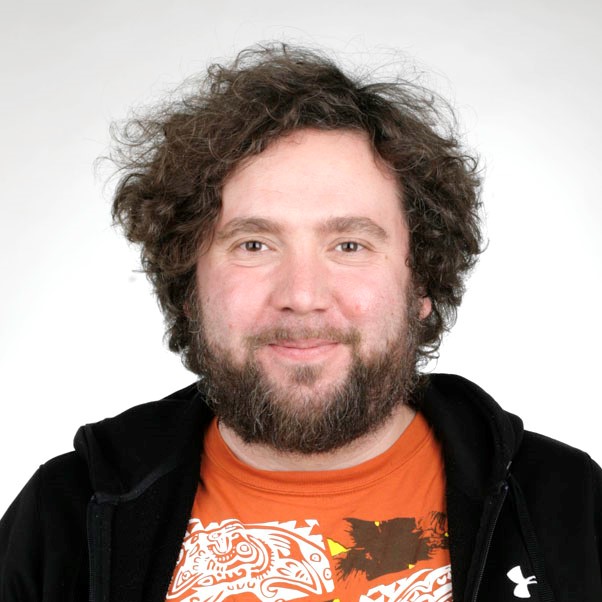

题 目:Towards Neuroadaptive Technology: An outlook on the potential impact of Passive Brain-Computer Interfaces on Technology, Neuroscience and Society
时 间:2018年9月8日(周六)13:00-14:00
地 点:机械与动力工程学院 F210会议室
邀请人:朱向阳教授(机器人研究所)

Biography
Thorsten O. Zander 博士现工作于德国柏林工业大学,任Team PhyPA团队负责人,神经适应技术协会和Zander Laboratories公司创办人及领导者,美国加州大学圣地亚哥分校Swartz中心客座研究员。
Dr. Thorsten O. Zander is well-known for his wide expertise in psychology and neuroergonomics, especially for his scientific contributions in the field of human-machine systems and brain-computer interfaces. Already during his doctorate he founded his first working group at Technische Universitaet Berlin, "Team PhyPA" (Physiological Parameters for Adaptation of Human-Machine Systems), in strong collaboration with the University of California in San Diego, Swartz Center for Computational Neuroscience, that lasts till today. He provided a categorization of different types of BCI systems, introducing the concept of passive BCIs and pioneering a new field of research called Neuroadaptive Technologies. In 2015 he founded the Society for Neuroadaptive Technology with the aim to foster the dissemination and the transfer of research results into practice. Therefore, he is part of an international network of scientists and CEOs that keeps growing. Cooperation with industry is essential for him, thus he took over responsibility in research and industry projects with a total funding amount of 2.728 T€ and works as a counsellor for Eagle Science in Amsterdam, Brain Products in Bavaria, and Brain Yision LLC in Morrisville/USA. In early 2016 he founded his own company Zander Laboratories B.Y. Moreover, his contacts to academia include famous scientists all over the world who often invite him as guest lecturer, such as the Wadsworth Center, Albany, USA and Technical University of Graz, Austria, Institute for Knowledge Discovery (altogether 48 invited talks).
Up to now, Dr. Thorsten O. Zander authored 69 publications, most of which were peer-reviewed and published in top- ranked journals and conferences, such as Journal of Neural Engineering, International Journal for Human-Computer Interaction, Frontiers in Neuroscience, Frontiers in Neuroprothetics, International Journal of Psychophysiology, Journal of Neuroscience Methods. He delivered contributions to 24 conference proceedings, 9 book chapters and edited 3 books. In June 2017 he acted as principal of the 1st Neuroadaptive Technology Conference held in Berlin. His most recent publication "Neuroadaptive technology enables implicit cursor control based on medial prefrontal cortex activity" (PNAS, 2016) from that event got outstanding attention in the world of neuro- and computerscience. Another highlight in Dr. Thorsten O. Zander's career was the Raja Parasuraman Award for Senior Research in the field of Neuroergonomics that he received in 2016.
Abstract
Passive Brain-Computer Interfaces (pBCIs) can assess information about changes in cognitive and affective state in real time and convey an interpretation of these states as implicit commands to a machine. The machine can then automatically adapt its own state to support a given task in the Human-Machine System. Furthermore, by collating information about the user state with the task-specific context and using methods from machine learning and artificial intelligence a user model can be generated that even reflects correlates of higher cognition. The resulting Neuroadaptive Technology leads to a convergence of human and machine intelligence and enables a fundamentally new way of interaction with technology.
In the talk he will provide an overview of recent developments in pBCI and Neuroadaptive Technology. Furthermore, he will discuss insights about how we can elaborate our understanding of human neuroscience by interpreting pBCI methods. By combining statistical machine learning with Independent Component Analysis, task-specific cortical sources and related single-trial activity can be identified directly from the used classification approach.
The approaches discussed have the potential to change the way we are affected by our interaction with technology and to redefine privacy, as machines automatically gain access to private information potentially without our consent or even without our awareness. I will discuss resulting ethical considerations in the conclusion of my talk.